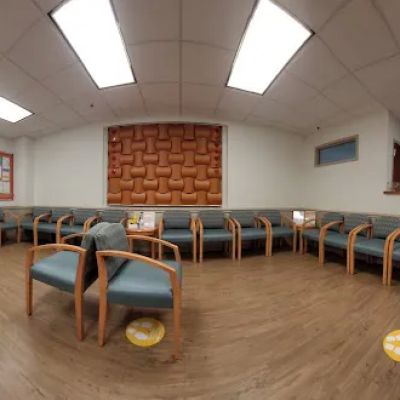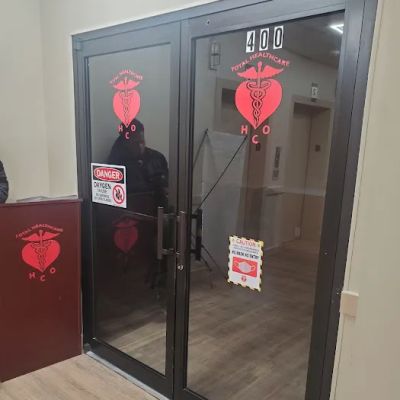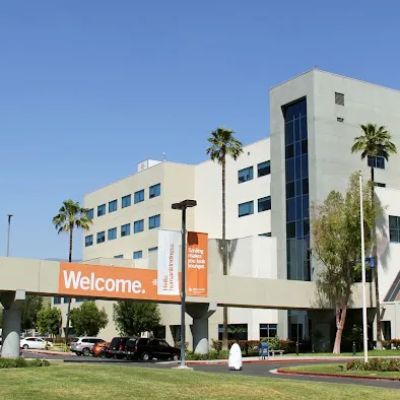Understanding Atrial Fibrillation: Recognizing the Symptoms and Knowing When to Seek Help
As someone who has spent a lot of time researching heart health, I know how overwhelming it can be to hear the term "atrial fibrillation" (AFib) for the first time. You might be wondering, “What does that even mean for me?” or "How can I tell if I have it?" In this article, I'll break down everything you need to know about atrial fibrillation, its symptoms, and why it's so important to get checked by a doctor when you experience certain signs. AFib is more common than many realize, and its impact can vary from mild to severe, so understanding the symptoms and taking the necessary steps to seek medical advice can make all the difference. Let’s dive into this together and explore how to manage it effectively.

What is Atrial Fibrillation?
Atrial fibrillation is a type of irregular heartbeat, or arrhythmia, where the heart's two upper chambers (the atria) beat erratically and out of sync with the lower chambers (the ventricles). This causes blood to flow less efficiently, which can lead to complications such as stroke, heart failure, and other heart-related issues. AFib may occur in short bursts (paroxysmal) or persist long-term (persistent or permanent), and it affects millions of people worldwide. But how do you know if you might have it?
Sunjeet Sidhu, MD
sidhu doctor
Johnston Professional Bldg, 3333 N Calvert St # 650, Baltimore, MD 21218, USA

Recognizing the Symptoms of Atrial Fibrillation
When I first learned about AFib, I was surprised to hear how varied the symptoms could be. Some people may not feel anything at all, while others experience noticeable and uncomfortable signs. It’s essential to recognize these symptoms early so that you can take action and see a doctor promptly. Here's what to watch out for:
1. Irregular Heartbeat
The most common symptom of atrial fibrillation is an irregular or rapid heartbeat. If your heart feels like it is fluttering, pounding, or skipping beats, it could be a sign of AFib. This sensation might come and go or could happen constantly, depending on the type of AFib you have. Personally, I remember hearing my heart racing after climbing a flight of stairs, and it felt strange. I didn’t think much of it at first, but upon reflection, it turned out to be a sign of AFib.
2. Shortness of Breath
Another common symptom is shortness of breath. You might feel winded even after light activity or when resting. This occurs because your heart is not pumping blood as effectively as it should. I recall a time when I felt out of breath after a light walk in the park, something that had never happened to me before. It's a sign that your heart may not be able to pump oxygen-rich blood as efficiently, which leads to fatigue and breathlessness.
3. Fatigue or Weakness
If you feel tired or weak without any clear reason, it could be related to AFib. Because the heart isn’t pumping blood effectively, your body may not be receiving the oxygen and nutrients it needs, leaving you feeling exhausted. I’ve had days when I felt drained, even after a good night's sleep. It was only later that I realized my irregular heartbeat was a contributing factor.
4. Dizziness or Lightheadedness
Dizziness or feeling lightheaded is another possible symptom of atrial fibrillation. Since AFib affects your heart's ability to circulate blood properly, it can result in decreased blood flow to your brain, causing faintness or even blackouts. I’ve had a couple of moments where I nearly passed out while standing up too quickly, and it was a wake-up call to pay closer attention to my health.
5. Chest Pain
Chest pain is a serious symptom and should never be ignored. It may feel like tightness, pressure, or discomfort in the chest, which can sometimes accompany AFib. If you ever feel pain in your chest that doesn’t go away after a few minutes, it could indicate a heart attack or a more severe cardiac issue. This is a situation where immediate medical help is necessary.
When Should You See a Doctor?
It’s easy to shrug off symptoms like a racing heart or shortness of breath, especially if they come and go. But it’s crucial to take these signs seriously and seek medical advice if they persist. AFib may lead to more severe complications, such as stroke, heart failure, or other cardiovascular diseases, if left untreated. So, when should you see a doctor? Let me share my thoughts:
1. If Symptoms Persist or Worsen
If you’re experiencing symptoms like an irregular heartbeat or shortness of breath that don’t go away, it’s time to visit a doctor. I learned the hard way that ignoring these symptoms only leads to more serious problems down the line. AFib symptoms can worsen over time, so don’t wait for things to escalate.
2. If You Experience Sudden Chest Pain or Fainting
If you feel severe chest pain, pressure, or if you faint unexpectedly, go to the hospital immediately. These could be signs of a stroke or a heart attack, which require urgent care. It's better to be safe and get checked out right away. I remember feeling a rush of panic when I experienced sudden dizziness and chest discomfort, but it was comforting to know I was taking the right steps by seeking medical help.
3. If You Are at Risk of Stroke or Other Heart Problems
If you have a history of heart disease, high blood pressure, or other cardiovascular risk factors, seeing a doctor is crucial, even if your symptoms are mild. Your doctor can monitor your condition and help you prevent complications such as stroke. I’ve had friends with a family history of heart disease who were able to manage their condition with the help of a good healthcare provider. Prevention is always better than cure!
What to Expect During Your Doctor’s Visit
When you visit your doctor, you’ll likely undergo several tests to help diagnose AFib. These may include an electrocardiogram (ECG) to measure your heart's electrical activity or an echocardiogram to assess how well your heart is pumping. The doctor might also ask about your symptoms, lifestyle, and medical history to better understand your risk factors. After the diagnosis, your doctor will discuss treatment options, which could include medications, lifestyle changes, or even procedures to restore a normal heart rhythm.
Having AFib is certainly not the end of the world, but it’s essential to catch it early to manage it effectively. Knowing when to seek help and understanding the symptoms can significantly reduce your risk of complications. If you suspect you may have AFib, don’t hesitate to contact a healthcare professional. The sooner you address the issue, the better your chances of living a healthy life.
Looking for Expert Heart Care?
If you’re searching for the best heart care options, I highly recommend visiting HeartCare Hub. They provide personalized recommendations for the best heart doctors, hospitals, and services to help you manage your heart health. Trust me, having access to quality care makes all the difference when it comes to managing conditions like AFib.





















Penn Presbyterian Medical Center
penn presbyterian doctors
51 N 39th St, Philadelphia, PA 19104, USA